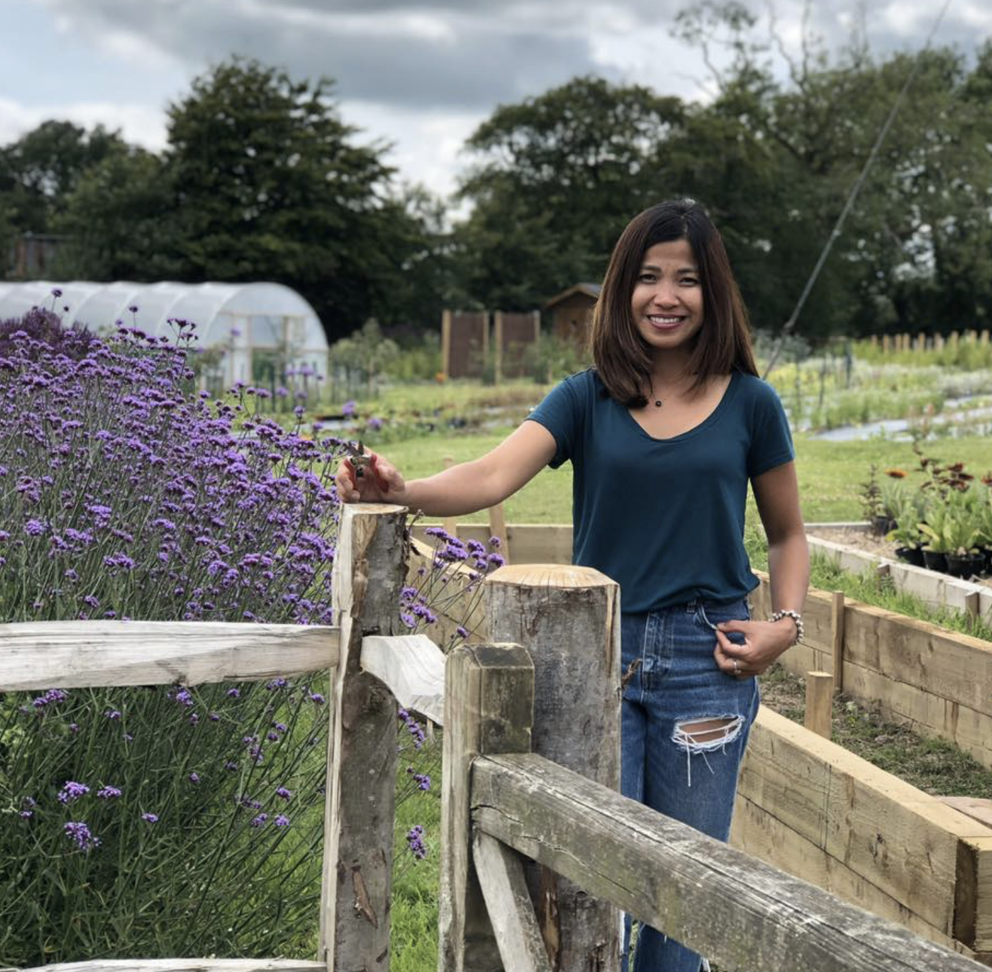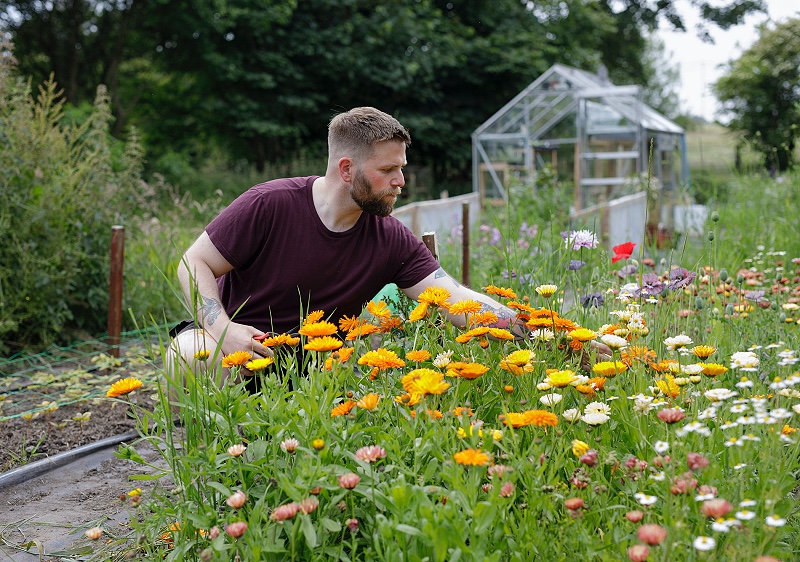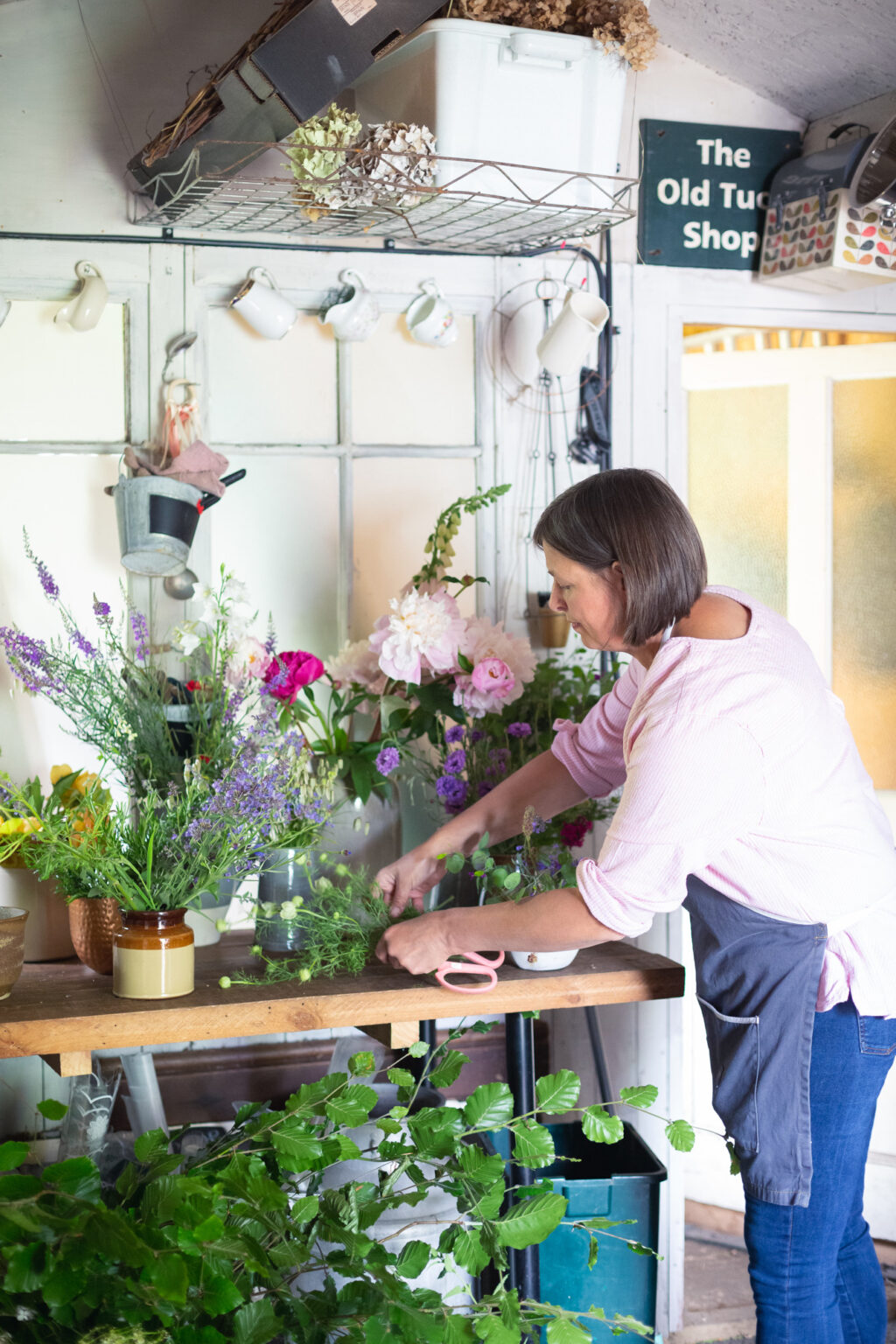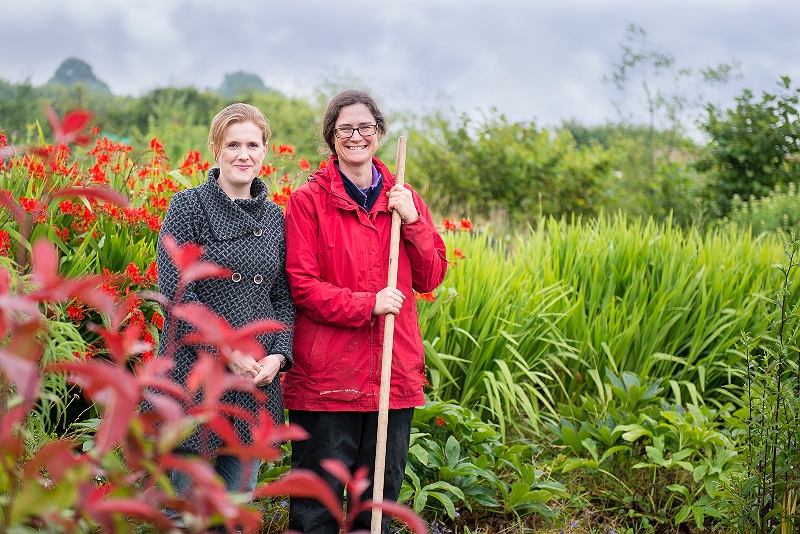I was born and raised in Manila, capital city of The Philippines, and while most individuals like me would have grandparents in towns outside the city, both sets of my grandparents also lived in the capital. Our home, built just behind my father’s parents, was tiny – possibly the size of my kitchen in the UK. It didn’t have a garden, not even a small one, so my childhood experience of flower growing was limited. My grandma had a small porch where she kept pot plants. Most pots were recycled large powdered milk cans which would eventually rust and disintegrate. There were a few orchids too, grown in coconut husks hung on a damp wall, and watered every night. Manila has no winter and an average temperature of 25C all year. It gets warmer in March with temperatures up to 38C (though it gets hotter now in certain areas during the height of summer).
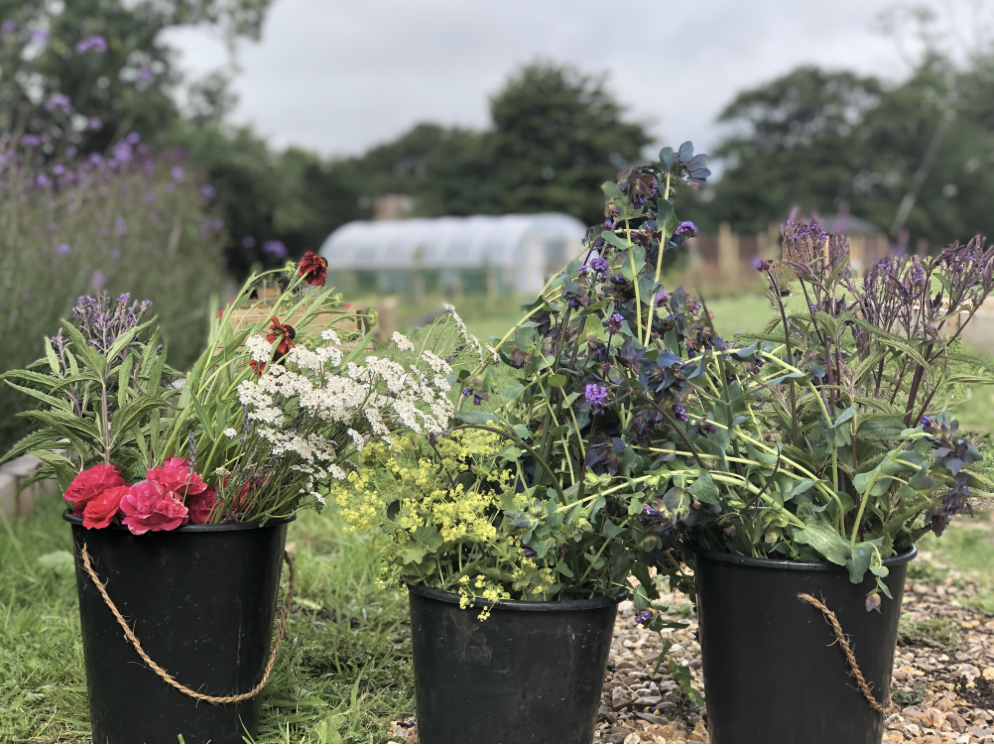
Aizel's farm is already producing buckets of beautiful blooms - you may spot achillea, cerinthe, lady's mantle and rudbeckia.
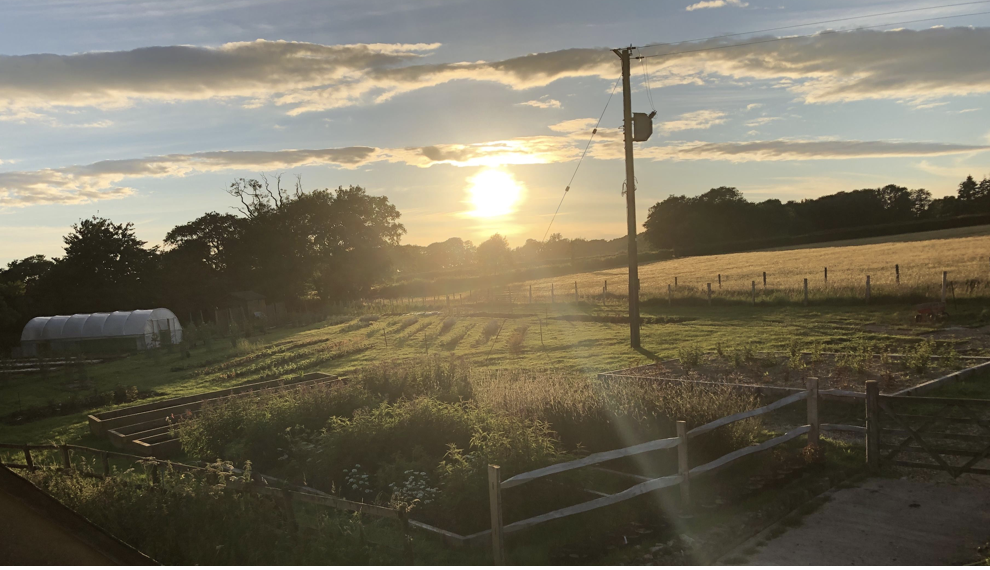
The sun sets of Yalham Hayes From Farm in Somerset.
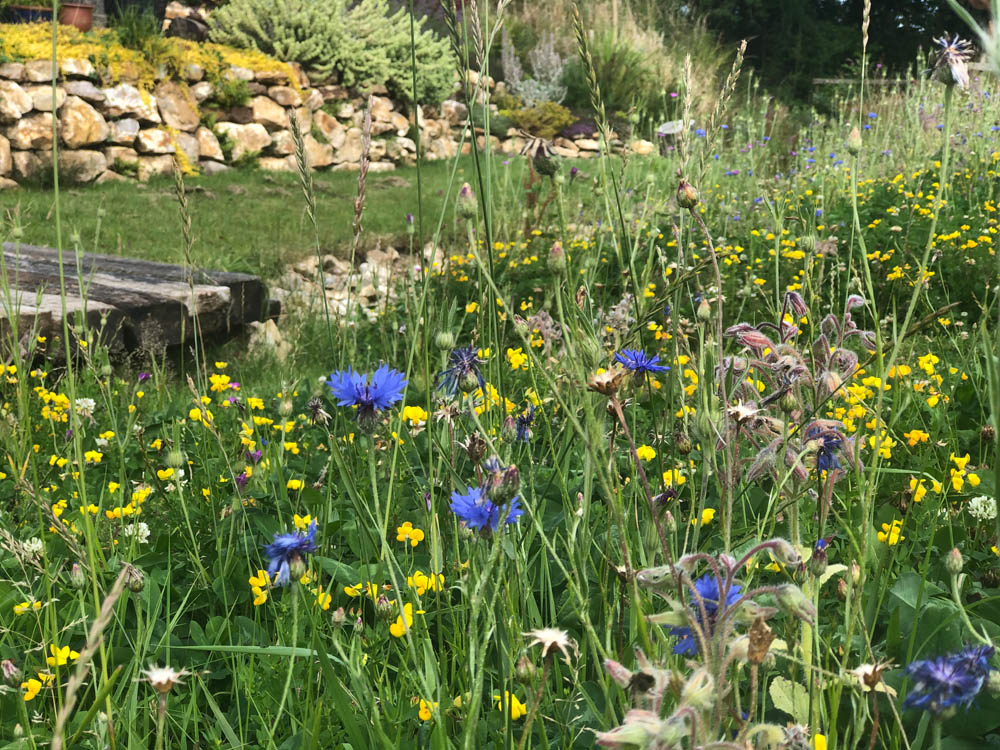
An early flush of cornflowers
Coming from an ordinary background, I had to work really hard to get into the University of the Philippines (UP). There I realised education was an equaliser. I sat next to many wealthy students in class. One had a bodyguard that followed us in another car when we went to a friend’s house to swim! Another had a mobile phone the size of a backpack and her monthly phone bill was three times what my parents earned a month. But in UP, we (sometimes) queued for the same food in the school canteen. We took the same exams. I secretly tried to outdo them in schoolwork just to prove a point to myself — they may have been rich but I was brighter. (I hope I don’t carry that angst now.)
1997 heralded the end of university and the Asian market crash. Jobs were scarce but eventually I landed a job in Corporate Communications and Market Research for a large telecoms company and as I worked up the corporate ladder, I reached a position where I earned enough to move out of our family home – a rare thing for 24 year olds to do in my country.
My next career move was to South Africa – not a popular place for Filipinos to work at the time due to apartheid. This was my first chance to really see more of the world and my expat package gave me a two bedroom home and my first garden! It was in Johannesburg that I also met my husband-to-be – an Englishman whom I married a few years later.
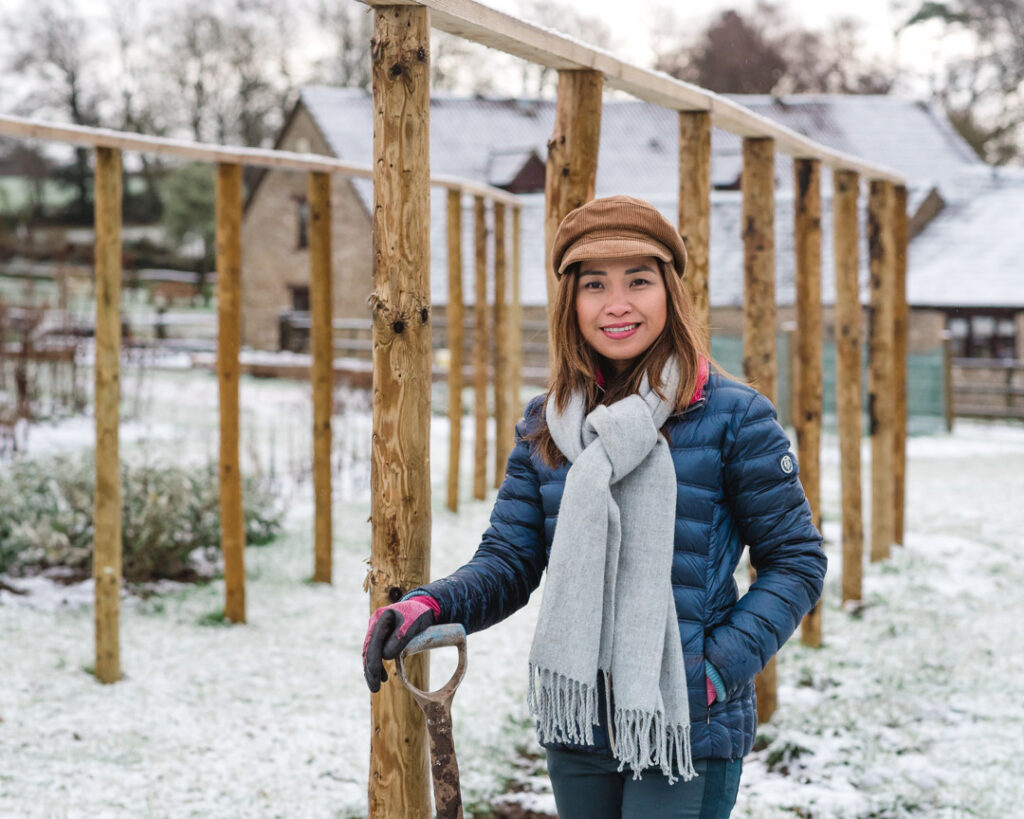
There's not a lot of digging that can be done in winter!
Whilst on a family holiday in Shropshire, we fell in love with the idea of living in the countryside and at this point, I started getting into gardening rather like a mad plant woman. When I couldn’t find anywhere else to plant in our small garden, I dug up the lawn, I moved pots every day if I could.
I was totally new to gardening to which there’s no equivalent in the Philippine way of life. As I grew up in the city, I had never paid attention to plants, or soil and other than the orchids which my grandmother loved, I can’t think of any ornamental plants that were part of my childhood. Plants and planting were never a conversation topic around the dinner table, nor did we have programmes like ‘Gardeners’ World’ or ‘Countryfile’ on TV. Farming had a very menial, lowly image and was never presented as something to aspire to. My education didn’t put any importance on learning about plants or trees – but even if it had, I would not have appreciated them in the way I do now. How could I have cared about gardening when I was desperate to finish school to get a job so I could earn good money?
In 2017, we moved into a barn conversion home with nearly three acres of land. On our first trip taking our son to school, we encountered a herd of ‘giant’ dairy cows and from that moment onwards, we knew our lives would be interesting.
I continued to explore ideas for what I might do in terms of self-employment and looking around our village I noticed that we didn’t have a bakery. Full of enthusiasm, I went on an intense 3-day bread making course in Dorset, only to never again make bread since!
My thoughts turned to what I really love: gardening. But I didn’t want to be a gardener, so I wondered about flowers, signing up for an introductory floristry course. Googling later to find local florists, I was surprised to come across a farmer florist in Devon. I really didn’t know that there were florists who grew what they arranged. This struck a chord with me because although I enjoyed arranging flowers, I was much more intrigued about the plants! Armed with this new idea for a career, I signed up for three different flower growing workshops – with Common Farm Flowers in Somerset, Green & Gorgeous in Oxfordshire, and Forever Green in Norfolk.
I studied RHS Level 2 and Level 3 horticulture diplomas and loved learning and meeting other people with similar interests. Looking at gardens, identifying plants, going around farms, I felt like a child seeing things for the first time. Perhaps that was exactly what I was doing. The more I learned, the more I realised how much I didn’t know. Without developing a horticulture sense from growing up around plants and not having grown up in England, it was very challenging to understand many concepts: when frosts came, or how the shadows change with the seasons, when seeds go in the ground, which seedlings should be planted under cover or sown directly and so much more!
The task of setting up a farm was very intimidating: marking out plant beds, deciding what to plant where (and why), organising irrigation, dealing with access, wind exposure, aphids, slugs… I really felt I needed farm experience and came across The Apricot Centre in Totnes, Devon. I signed up for their six month permaculture course and learned a lot about the three main principles of earth care, people care, and fair share.
It was exciting to realise my dream of starting a flower farm this year. Through my studies, I built my confidence and I also gained a bit of experience through landscaping the front of our home, but I still felt like a total beginner when we started preparing the ground. We are learning from our mistakes every day.
Working the land I’ve seen birds fly above my head, and bees asleep on flowers. I’ve even driven a digger! I’ve met so many interesting people, made new friends and right now the possibilities feel endless.
Yalham from old English, ‘ewelm’, means springhead and for me the farm is a wonderful beginning, a large part of a greater design.
